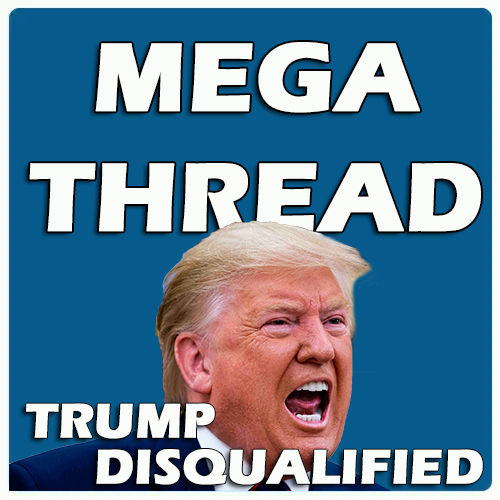The Colorado Supreme Court is removing former President Donald Trump from the primary ballot, saying he is ineligible to be president.
In a stunning and unprecedented decision, the Colorado Supreme Court removed former President Donald Trump from the state’s 2024 ballot, ruling that he isn’t an eligible presidential candidate because of the 14th Amendment’s “insurrectionist ban.”
“Even when the siege on the Capitol was fully underway, he continued to support it by repeatedly demanding that Vice President (Mike) Pence refuse to perform his constitutional duty and by calling Senators to persuade them to stop the counting of electoral votes.
“President Trump’s direct and express efforts, over several months, exhorting his supporters to march to the Capitol to prevent what he falsely characterized as an alleged fraud on the people of this country were indisputably overt and voluntary.”
Ratified after the Civil War, the 14th Amendment says officials who take an oath to support the Constitution are banned from future office if they “engaged in insurrection.” But the wording is vague, it doesn’t explicitly mention the presidency, and has only been applied twice since 1919.
We have full confidence that the U.S. Supreme Court will quickly rule in our favor and finally put an end to these unAmerican lawsuits,” Trump campaign spokesperson Steven Cheung said in a statement.
Chief Justice Brian Boatright, one of the three dissenters on the seven-member court, wrote that he believes Colorado election law “was not enacted to decide whether a candidate engaged in insurrection,” and said he would have dismissed the challenge to Trump’s eligibility.
LINKS
AP: Colorado Supreme Court bans Trump from the state’s ballot under Constitution’s insurrection clause | @negativenull@startrek.website
Washington Post: Donald Trump is barred from Colorado’s 2024 primary ballot, the state Supreme Court rules | @silence7@slrpnk.net
CNBC: Colorado Supreme Court disqualifies Trump from 2024 ballot, pauses ruling to allow appeal | @return2ozma
NBC News: Colorado Supreme Court kicks Donald Trump off the state's 2024 ballot for violating the U.S. Constitution. | 18-24-61-B-17-17-4
CNN: Colorado Supreme Court removes Trump from 2024 ballot | A Phlaming Phoenix
CNN:Colorado Supreme Court removes Trump from 2024 ballot based on 14th Amendment’s ‘insurrectionist ban’ | @Boddhisatva
New York Times: Trump Is Disqualified From the 2024 Ballot, Colorado Supreme Court Rules | @silence7@slrpnk.net


It's complicated.
Caucuses are a bunch of people in the party getting together for a day to decide on a candidate. They often take ballots internally, but it's essentially a party operation. There was a time it was grossly corrupt--the trope of the smoke-filled room comes from this--but these days, it tends to be a lot of rank-and-file party members who happen to be able to take a day off work.
Primaries are more open. Some states want you to declare a party affiliation to vote in that party's primary, but it's not like you have to actually sign up to be part of the party in any other capacity. Other states let any registered voter show up and vote in one party's primary. In some respects, it resembles a runoff system that's been patched around a First Past the Post system.
This is a good answer. I wanted to further clarify based on my experience with both. In Colorado to participate in the caucus you do have to be a registered party member. The party will have an evening where registered members who want to participate go to a designated location, usually a school, and sit with the other people from tbeir precinct. I can't remember of you have to be pre-approved for this or if you can just show up. They then take a secret vote to determine who your precinct is voting for and also hold a vote for one person to attend the state convention and an alternate to attend and vote if the first person can't attend for some reason. You then go to the convention and every precinct votes for their candidate. You're obviously supposed to vote for whoever the precinct agreed on but you are not legally bound by that or anything.
By contrast in a primary state that I have voted in they simply mail everybody both ballots (or I guess you could go in if you felt like it) and you vote on one ballot. Some states may require you to be a party member but in this case you can choose to vote on either the republican or Democrat ballot but you can't vote on both.